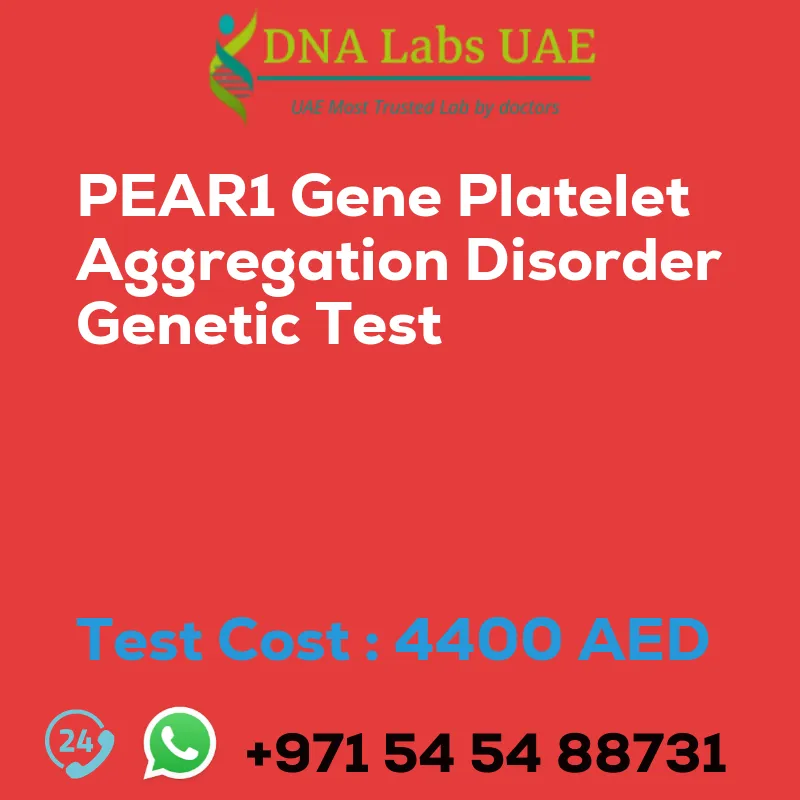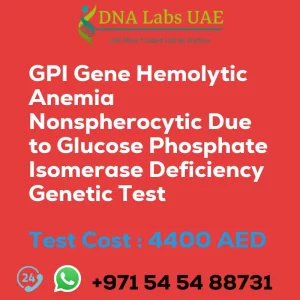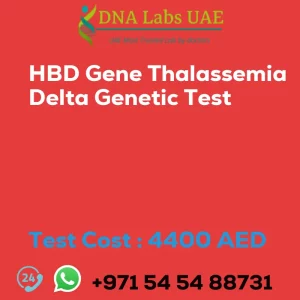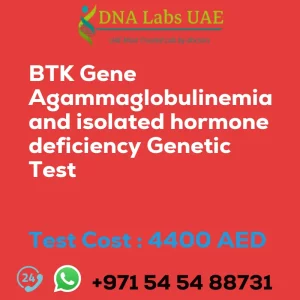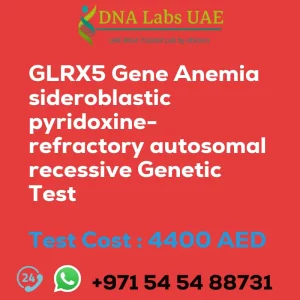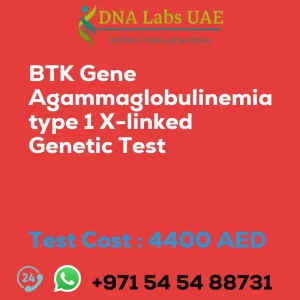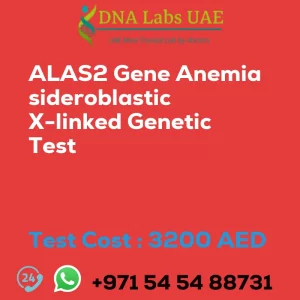PEAR1 Gene Platelet Aggregation Disorder Genetic Test
Cost: AED 4400.0
Introduction
Platelet aggregation disorder is a condition characterized by abnormal platelet function, leading to difficulties in blood clotting. The PEAR1 gene is responsible for encoding a protein called platelet endothelial aggregation receptor 1, which is found on the surface of platelets. Genetic testing using NGS technology can help diagnose individuals with platelet aggregation disorders and provide information about their specific genetic mutations.
Test Details
The PEAR1 gene platelet aggregation disorder genetic test is a diagnostic tool that uses next-generation sequencing (NGS) to analyze the PEAR1 gene for mutations associated with platelet aggregation disorders.
Components
- Test Name: PEAR1 Gene Platelet Aggregation Disorder Genetic Test
- Price: AED 4400.0
- Sample Condition: Blood or Extracted DNA or One drop Blood on FTA Card
- Report Delivery: 3 to 4 Weeks
- Method: NGS Technology
- Test Type: Hematology
- Doctor: Hematologist
- Test Department: Genetics
Pre Test Information
Before undergoing the PEAR1 gene platelet aggregation disorder genetic test, it is important to provide the clinical history of the patient who is going for the test. Additionally, a genetic counseling session may be conducted to draw a pedigree chart of family members affected with platelet aggregation disorder and the PEAR1 gene.
Test Process
NGS genetic testing is a technique used to analyze the DNA sequence of an individual’s genes. In the case of the PEAR1 gene platelet aggregation disorder genetic test, it specifically focuses on the PEAR1 gene to detect mutations or variations that may be associated with platelet aggregation disorders.
Benefits
The PEAR1 gene platelet aggregation disorder genetic test can help diagnose individuals with platelet aggregation disorders and provide information about their specific genetic mutations. This information can aid in treatment and management strategies for the condition.
Conclusion
The PEAR1 gene platelet aggregation disorder genetic test is a valuable diagnostic tool that utilizes NGS technology to analyze the PEAR1 gene for mutations associated with platelet aggregation disorders. By identifying these genetic mutations, healthcare professionals can provide personalized treatment and management strategies for individuals with platelet aggregation disorders.
| Test Name | PEAR1 Gene Platelet aggregation disorder Genetic Test |
|---|---|
| Components | |
| Price | 4400.0 AED |
| Sample Condition | Blood or Extracted DNA or One drop Blood on FTA Card |
| Report Delivery | 3 to 4 Weeks |
| Method | NGS Technology |
| Test type | Hematology |
| Doctor | Hematologist |
| Test Department: | Genetics |
| Pre Test Information | Clinical History of Patient who is going for PEAR1 Gene Platelet aggregation disorder NGS Genetic DNA Test. A Genetic Counselling session to draw a pedigree chart of family members affected with PEAR1 Gene Platelet aggregation disorder NGS Genetic DNA Test gene PEAR1 |
| Test Details | The PEAR1 gene is responsible for encoding a protein called platelet endothelial aggregation receptor 1. This protein is found on the surface of platelets, which are small blood cells involved in clotting. Platelet aggregation is the process by which platelets stick together to form a blood clot at the site of an injury. Platelet aggregation disorder is a condition characterized by abnormal platelet function, leading to difficulties in blood clotting. This can result in excessive bleeding or prolonged bleeding after an injury or surgery. There are various genetic mutations that can affect the function of the PEAR1 gene and lead to platelet aggregation disorders. NGS (Next-Generation Sequencing) genetic testing is a technique used to analyze the DNA sequence of an individual’s genes. It can detect mutations or variations in genes, including the PEAR1 gene, that may be associated with platelet aggregation disorders. This type of genetic testing can help diagnose individuals with platelet aggregation disorders and provide information about their specific genetic mutations, which can aid in treatment and management strategies. Overall, the PEAR1 gene platelet aggregation disorder NGS genetic test is a diagnostic tool that uses next-generation sequencing to analyze the PEAR1 gene for mutations associated with platelet aggregation disorders. |

